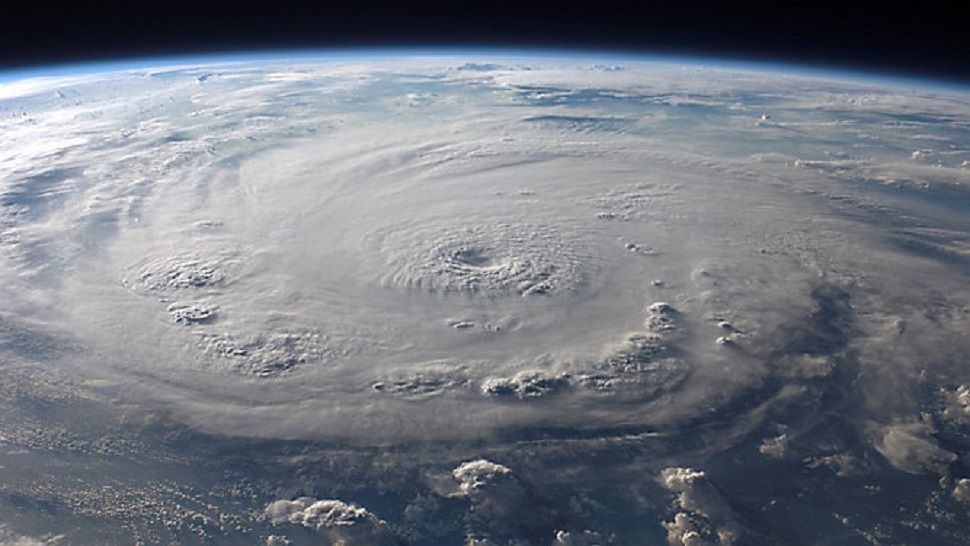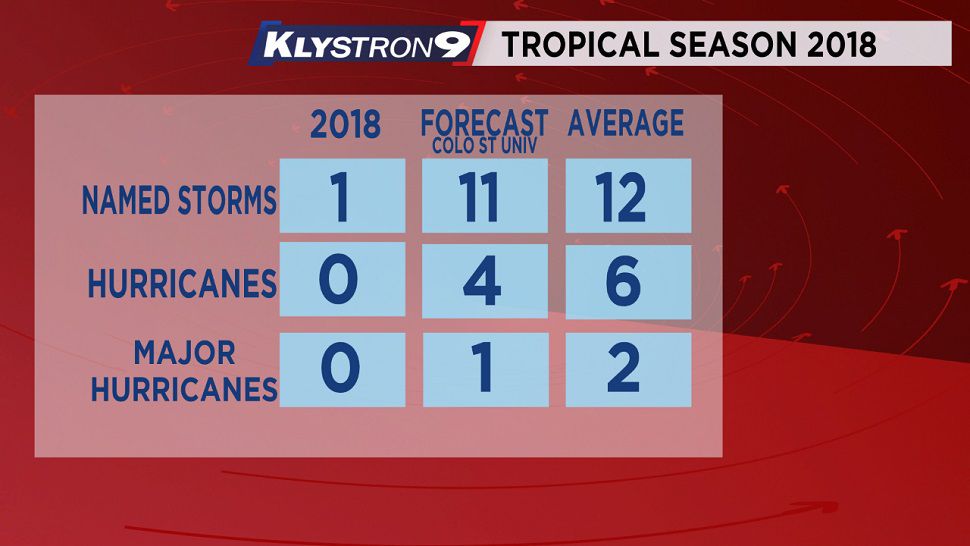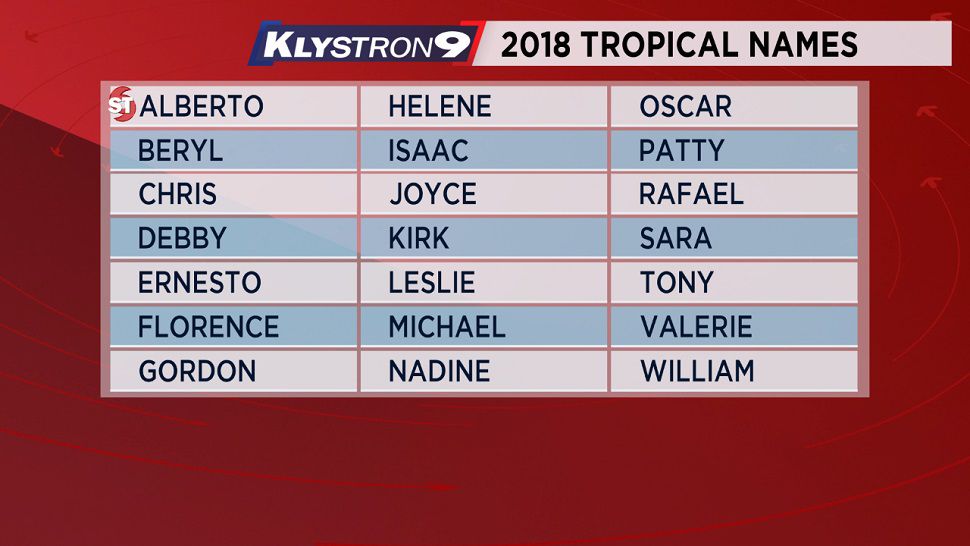Forecasters at Colorado State University have updated their predictions for the 2018 hurricane season.
The forecast by Philip J. Klotzbach and Michael M. Bell is a considerable decrease from their April and June forecasts.
July 2, 2018 seasonal forecast:
- 11 named storms, including Subtropical Storm Alberto (Average is 12)
- 4 hurricanes (Average is 6)
- 1 major hurricane, Category 3 or higher (Average is 2)
PROBABILITIES FOR AT LEAST ONE MAJOR (CATEGORY 3-4-5) HURRICANE LANDFALL ON EACH OF THE FOLLOWING COASTAL AREAS:
1) Entire U.S. coastline - 39 percent (average for last century is 52 percent)
2) U.S. East Coast Including Peninsula Florida - 22 percent (average for last century is 31 percent)
3) Gulf Coast from the Florida Panhandle westward to Brownsville - 21 percent (average for last century is 30 percent)
There remains some uncertainly with this forecast because the models are split on whether we will have a weak El Niño event or a neutral ENSO event during the peak of the Atlantic hurricane season from August-October. However, their primary reason for reducing the forecast is due to the cooler waters in the tropical Atlantic.
According to their latest report:
"We now anticipate a below-average Atlantic basin hurricane season. The tropical Atlantic is much colder than normal. A colder than normal tropical Atlantic provides less fuel for developing tropical cyclones but also tends to be associated with higher pressure and a more stable atmosphere. These conditions tend to suppress Atlantic hurricane activity.
"Also, the odds of a weak El Niño for the peak of the Atlantic hurricane season in 2018 have increased somewhat. If El Niño were to develop, it would tend to lead to more vertical wind shear in the Caribbean extending into the tropical Atlantic, tearing apart hurricanes as they are trying to develop and intensify. Coastal residents are reminded that it only takes one hurricane making landfall to make it an active season for them, and they need to prepare the same for every season, regardless of how much activity is predicted."





